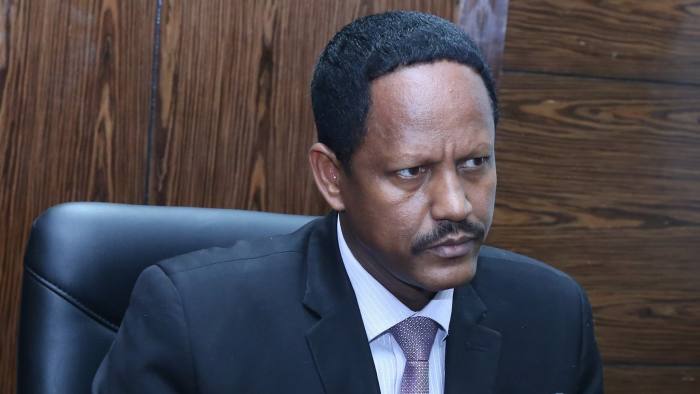The government of Ethiopia has vowed to crush all threats to its economic model and insists it is succeeding in restoring order as it grapples with the most serious threat to its 26-year hold on power.
Negeri Lencho, the communications minister, told the Financial Times that a state of emergency imposed in October had succeeded in quashing a wave of nationwide anti-government protests that left hundreds of people dead. He insisted that Addis Ababa would not “give opportunity to any party to block the fast-growing economy and the attempt or efforts of the Ethiopian government to change the lives of the people”.
But in an apparent acknowledgment of the failings of the government’s state-driven development model, he admitted that anger over high unemployment was a factor behind the unrest.
“The government educated the youth and there was not enough employment,” Mr Lencho said. “So the extremists used this fertile ground to incite violence.”
More than 500 people have been killed and tens of thousands detained over the past 18 months as anti-government protests spread across the country. The violence, which also targeted foreign-owned business, and the autocratic government’s response, has rattled investors.
The unrest has also called into question the sustainability of Addis Ababa’s economic model, which has helped drive some of the world’s fastest growth rates and lured billions of dollars of foreign investment to the Horn of Africa nation.
The ruling Ethiopian People’s Revolutionary Democratic Front, a Marxist-Leninist coalition that has ruled with an iron grip since taking power in 1991, has concentrated on state-led infrastructure and industrialisation projects rather than opening up the private sector as it has sought to develop the impoverished country.
The model has been widely lauded in development circles, but the government has been accused of taking repressive measures and committing human rights abuses.
Mr Lencho said authorities had detained more than 20,000 people for “training” on the constitution since the protests erupted — initially over land disputes — in 2015.
The minister refused to speculate on how long the state of emergency, imposed for six months, would last.
He said “armed groups” and “terrorist organisations” bent on regime change, most of which were overseas, and which he did not identify, were no longer able to incite violence because of the restrictions on demonstrating and access to, and use of, social media. But he gave few specifics, apart from the creation of a “forum” of political organisations, about how the government was addressing people’s underlying frustrations to ensure the protests did not re-erupt.
The grievances, which he accepted were largely justified, were a lack of “good governance, justice, fairness [and] equity in benefiting from development”.
Pro-democracy activists and foreign diplomats have dismissed the forum as being a sham because it comprises few credible opposition figures. They say it is indicative of the government’s refusal to countenance meaningful reform. Ethiopia’s political opposition has been severely weakened, and the EPRDF and its allies control all the seats in parliament.
“They’re worried that if they give an inch they won’t be able to control the fallout,” a diplomat said.
Activists say Ethiopians flocked to the demonstrations because the government had steadily curtailed democratic freedoms since post-election protests in 2005 were ruthlessly crushed.
Protests flared periodically thereafter, but began in earnest in November 2015 when the government sought to extend the capital Addis Ababa into Oromia. This plan was eventually shelved but because of the authorities’ repressive response the demonstrations spread and became increasingly violent.
Hailemariam Desalegn, the prime minister, has admitted that about 500 people might have died while human rights groups and activists believe the toll is much higher.
Mass arrests followed, which Mr Lencho said fell into two categories: protesters who needed “training” for a few months and people considered more hardened criminals.
Initially about 11,000 people underwent “training”, of whom more than 8,000 have been released. A further 12,500 have been incarcerated for training in a second wave of detentions, he added.
No figures have been given for the total number of arrests but activists believe it is more than 50,000. Read more here


No comments:
Post a Comment